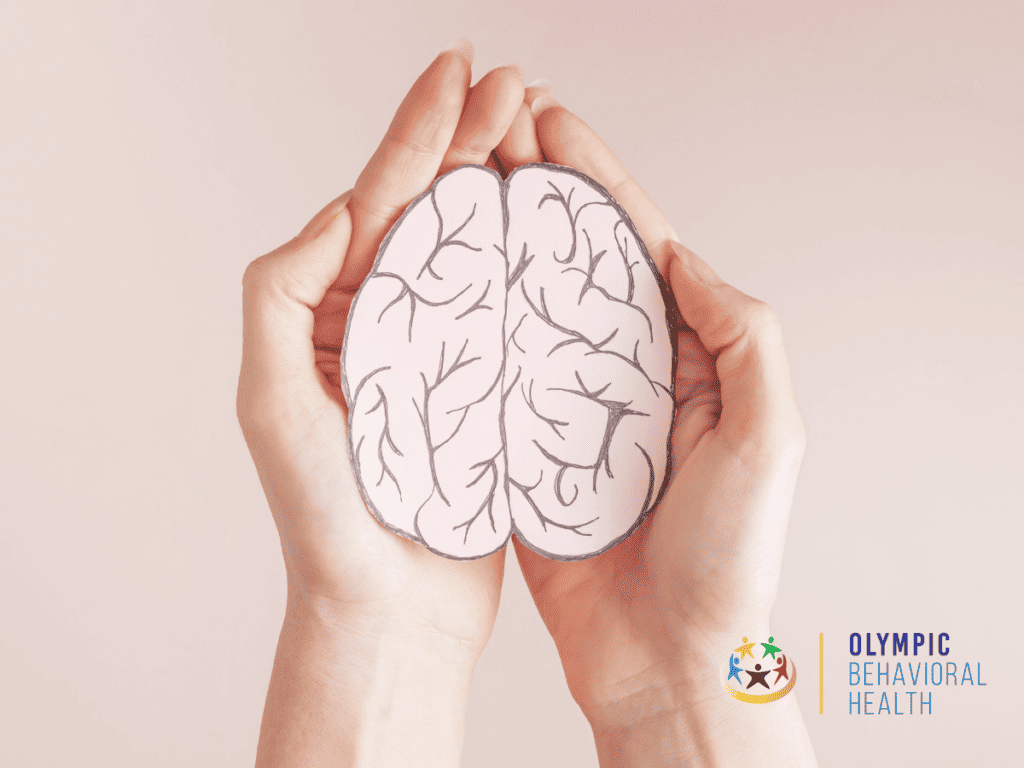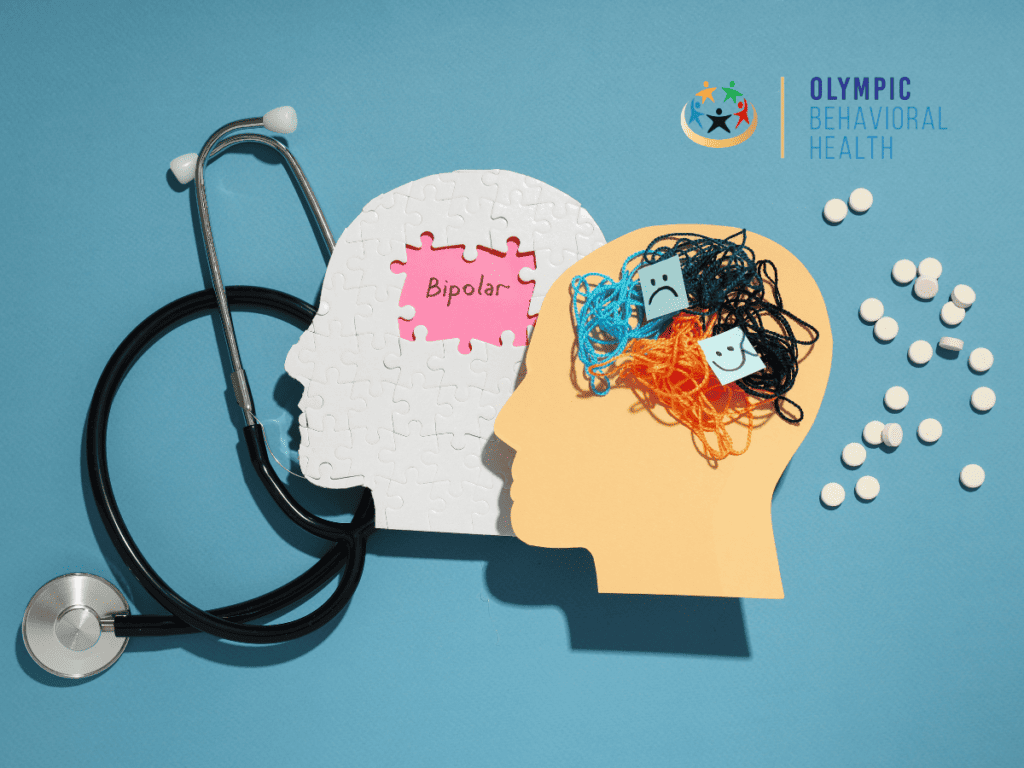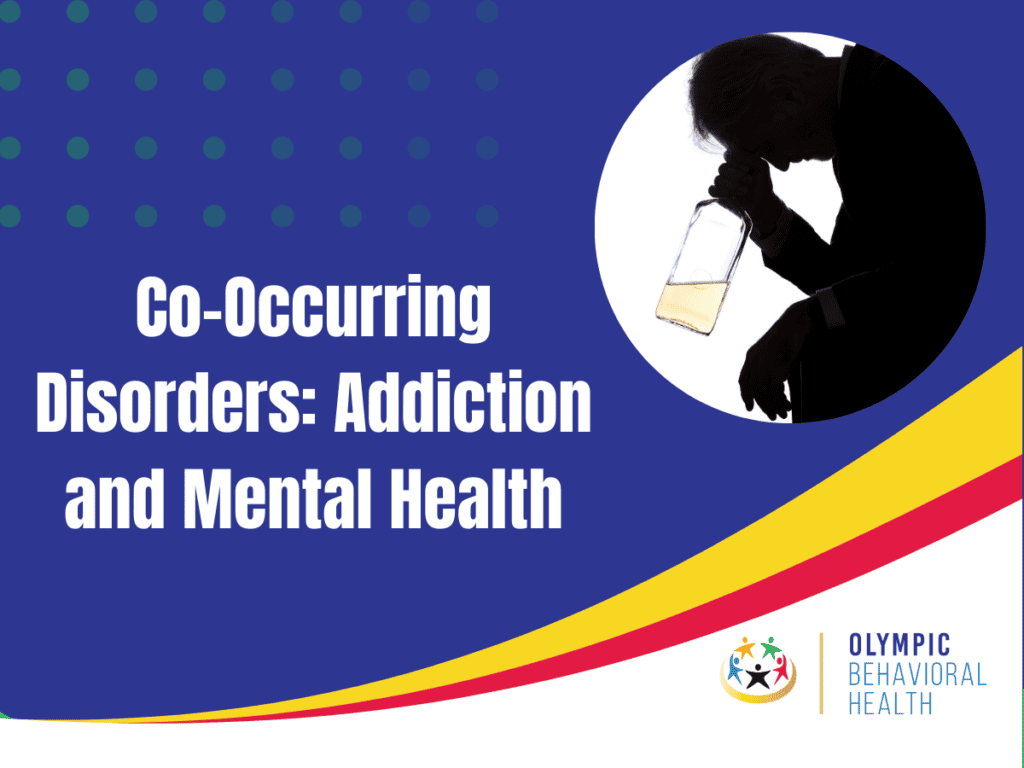Substance Use Disorder (SUD) is recognized as a treatable mental health condition by the National Institute of Mental Health, impacting both the brain and behavior of individuals. This disorder compromises the ability to regulate the use of legal or illegal drugs, alcohol, or medications, with addiction representing its most severe manifestation, presenting symptoms that vary in intensity from moderate to severe.
Beyond the standalone challenges posed by SUD, individuals struggling with this disorder often concurrently contend with other mental health disorders. The intersection of mental health issues and substance use can lead to a complex interplay of conditions. Anxiety disorders, depression, attention-deficit hyperactivity disorder (ADHD), bipolar disorder, personality disorders, and schizophrenia are among the mental health disorders that may co-occur with SUD.
Mental health disorders and substance use disorders are both common health issues. When an individual suffers from both conditions simultaneously, the impact can be even more severe, worsening the intensity of both ailments. This condition is commonly known as a co-occurring disorder, where a person is diagnosed with both a mental illness and a substance use disorder.
Despite the capacity for these disorders to manifest independently, their coexistence tends to amplify the symptoms associated with each, resulting in a more pronounced and challenging clinical presentation. Individuals with co-occurring disorders commonly experience more severe symptoms than those dealing with only one of the disorders, underscoring the intricate relationship between mental health and substance use.
What’s The Definition of Co-Occurring Disorders?
A person with a co-occurring disorder has been diagnosed with both a mental health disorder and a substance use disorder. These diagnoses can be made simultaneously or at different times, but both disorders are present in the same individual.
What Is the Prevalence of Co-Occurring Disorders?
As reported by the National Institute on Drug Abuse, approximately 7.7 million adults in the United States struggle with co-occurring mental and substance use disorders. The presence of one disorder does not necessarily indicate causation, and establishing the chronological order of onset can pose challenges.
Among the 20.3 million adults contending with substance use disorders, 37.9% concurrently experience mental illnesses. Conversely, among the 42.1 million adults dealing with mental health conditions, 18.2% also confront co-occurring substance use disorders. These statistics underscore the significant intersection between mental health and substance use, emphasizing the need for a comprehensive approach to address these intertwined challenges.

What Are The Causes of Co-Occurring Disorders?
The co-occurrence of Substance Use Disorder (SUD) and mental disorders does not necessarily imply a causal relationship between them. According to the National Institute of Mental Health, research suggests three potential explanations for the simultaneous occurrence of SUDs and other mental disorders:
- Shared Risk Factors: Common risk factors may contribute to the development of SUDs and other mental disorders. Family history plays a role, as specific genes can act as risk factors for both conditions. Environmental factors, such as stress or trauma, can induce genetic changes passed down through generations, potentially contributing to the onset of either a mental disorder or a substance use disorder.
- Contribution of Mental Disorders to Substance Use and SUDs: Studies indicate that individuals with mental disorders like anxiety, depression, or post-traumatic stress disorder (PTSD) might resort to drug or alcohol use as a means of self-medication. While certain substances may temporarily relieve symptoms, they can exacerbate the conditions over time. Moreover, alterations in the brain of individuals with mental disorders may heighten the pleasurable effects of substances, increasing the likelihood of sustained use.
- Contribution of Substance Use and SUDs to Other Mental Disorders: Substance use has the potential to induce changes in the structure and function of the brain, making an individual more susceptible to the development of additional mental disorders. The act of substance use itself may serve as a triggering factor for the emergence of mental health issues.
What Are The Symptoms of Co-Occurring Disorders?
Only a qualified mental health professional possesses the authority to diagnose a mental health or substance use disorder officially. However, having an awareness of the common symptoms associated with co-occurring disorders can empower individuals to recognize when seeking assistance is necessary. These symptoms mirror those found in both mental health and substance use disorders, co-occurring in the same individual. Key indicators encompass:
- Withdrawal from Relationships: Distancing oneself from interactions with family and friends.
- Abrupt Behavioral Changes: Sudden shifts in behavior that may be noticeable.
- Difficulty in Daily Task Management: Struggling to handle routine daily responsibilities effectively.
- Engagement in Risky Behaviors: Participating in activities that pose potential harm.
- Neglect of Health and Hygiene: Disregarding personal health and hygiene practices.
- Substance Use in Unsafe Conditions: Employing substances in environments that compromise safety.
- Loss of Control over Substance Use: Inability to regulate and manage the consumption of substances.
- Increased Tolerance or Withdrawal Symptoms: Developing a heightened tolerance to substances or experiencing withdrawal symptoms.
- Dependency for Normal Functioning: Feeling a perceived necessity to use substances to maintain normal functioning.
What Are The Mental Disorders that Co-Occur with Substance Abuse?
Various types of mental health disorders frequently coexist with substance use disorders, falling into five primary categories:
Mood Disorders
- These disorders, such as major depressive disorder and bipolar disorder, involve disruptions in mood that significantly impact an individual’s life.
- Co-diagnosis of mood disorders and substance abuse is common, and the sequence in which they are initially diagnosed varies.
Anxiety Disorders
- Generalized anxiety disorder, social anxiety disorder, obsessive-compulsive disorder, and post-traumatic stress disorder are examples of anxiety disorders.
- Substance abuse and anxiety disorders often co-occur, with individuals experiencing more severe symptoms when both disorders are present.
Psychotic Disorders
- Psychotic disorders, including schizophrenia, delusional disorder, and schizoaffective disorder, entail changes in thinking and perception.
- Co-diagnosing psychotic disorders and substance abuse can be challenging, as substance-induced psychosis must be distinguished from psychosis unrelated to substance use.
Personality Disorders
- Conditions like borderline personality disorder, antisocial personality disorder, and narcissistic personality disorder lead to unhealthy thoughts and behaviors affecting daily life and relationships.
- Personality disorders are commonly co-diagnosed with substance abuse disorders, particularly in individuals with drug use disorders.
Eating Disorders
- Dysfunctional eating habits characterize eating disorders, including binge eating disorder, anorexia nervosa, and bulimia nervosa.
- Co-diagnosis of eating disorders and substance abuse is prevalent, potentially influenced by genetic factors that predispose individuals to both conditions.
While distinctions exist among these disorders, similarities in their diagnostic criteria, co-occurrence patterns, and mutual influence on one another are evident. Recognizing these shared characteristics is crucial for comprehensive assessment and effective intervention. It is noteworthy that addressing both mental health and substance use concurrently has shown improved outcomes for individuals dealing with co-occurring disorders.

Which Comes First, Addiction or Mental Illness?
Individuals facing a dual diagnosis of both drug addiction and mental illness may encounter either condition at the initial onset, and there is no universally established sequence for diagnosis. The relationship between mental illness and addiction is intricate, with both often influencing each other.
Underlying Mental Illness as a Precursor to Addiction
Mental health issues can contribute to addiction when an individual resorts to substance use for self-medication. This reliance on substances to achieve a sense of normalcy may escalate, leading to an increased need for the substance to produce desired effects and ultimately resulting in addiction. Changes in brain functioning associated with mental health issues can heighten vulnerability to substance use disorders, fostering a greater susceptibility to addiction.
Impact of Substance Abuse on Mental Health
The use of substances that alter one’s state of mind by individuals dealing with mental health issues can significantly affect their underlying mental well-being. Typically, drug use exacerbates the symptoms of existing mental health disorders. Moreover, substance abuse can have broader implications, such as hindering adherence to prescribed medications for mental health issues, making it challenging to manage and control the associated symptoms.
Additionally, substance use disorders are correlated with heightened tendencies toward aggressive and violent behavior. This underscores the intricate interplay between substance abuse and mental health, highlighting the importance of comprehensive intervention strategies.
How Are Co-Occurring Disorders Diagnosed?
Mental health and substance use disorders are typically diagnosed based on specific criteria outlined in the Diagnostic and Statistical Manual of Mental Disorders (DSM). This manual serves as a guide for clinicians, providing clear definitions and diagnostic criteria for various mental health and substance use issues, relying on commonly observed symptoms.
However, the recognition and description of co-occurring disorders were initially limited in earlier manual editions. The fifth edition, known as DSM-5, addressed this gap by enhancing the definition and understanding of co-occurring substance use and mental health disorders. This edition acknowledges that individuals with co-occurring disorders generally display similar mental health symptoms as those with standalone mental health disorders but without a simultaneous substance use disorder.
Importantly, it emphasizes that substance use disorders are not necessarily more severe in individuals with a mental health disorder. Essentially, individuals with co-occurring disorders exhibit symptoms characteristic of both conditions, contributing to a more comprehensive understanding and diagnosis.
How Does Trauma Affect Mental Health and Lead to Addiction?
The impact of trauma on addiction can be significant. Traumatic experiences can lead to mental health issues such as depression, anxiety, and PTSD, which can in turn drive individuals to seek solace in addictive behaviors or substances. Addressing trauma is crucial in effectively treating addiction and promoting overall mental well-being.
What Are The Dual Diagnosis Treatment Options for Co-Occurring Disorders?
For individuals dealing with co-occurring substance use and mental disorders, various treatment approaches are available, often tailored to individual needs. Healthcare providers may recommend behavioral therapies alone or in conjunction with medications based on the specific circumstances. Here are examples of effective treatment options outlined by the National Institute of Mental Health:
Behavioral Therapies for Adults
- Cognitive Behavioral Therapy (CBT): A talk therapy focusing on helping individuals cope with challenging situations by challenging irrational thoughts and modifying behaviors.
- Dialectical Behavior Therapy (DBT): Incorporates mindfulness and acceptance principles, teaching skills to manage intense emotions, reduce self-destructive behaviors, and enhance relationships.
- Assertive Community Treatment (ACT): Community-based mental health care emphasizing outreach and personalized treatment approaches.
- Therapeutic Communities (TC): Long-term residential treatment focuses on cultivating new, healthier values, attitudes, and behaviors.
- Contingency Management (CM): Encourages positive behaviors by providing vouchers or rewards for desired behaviors.
Behavioral Therapies for Children and Adolescents
- Brief Strategic Family Therapy (BSFT): Targets family interactions contributing to or worsening adolescent substance use and other problem behaviors.
- Multidimensional Family Therapy (MDFT): Addresses multiple and interacting adolescent problem behaviors within the context of the entire family.
- Multisystemic Therapy (MST): Targets critical factors associated with severe antisocial behavior in children and adolescents with substance use disorders.
Medications
Effective medications exist for treating opioid, alcohol, and nicotine addiction, as well as alleviating symptoms associated with various mental disorders. Some medicines may prove beneficial in addressing multiple co-occurring disorders.

How Does EMDR Therapy Address Co-Occurring Disorders Such as Addiction and Mental Health?
EMDR therapy is effective in addressing co-occurring disorders like addiction and mental health issues by targeting traumatic memories that contribute to these conditions. By reprocessing negative experiences, emdr therapy helps individuals manage triggers, reduce symptoms, and develop healthier coping mechanisms, ultimately leading to improved overall well-being.
Get Help at Olympic Behavioral Health
While the simultaneous occurrence of substance use disorders and mental health disorders has long been noted, the development of treatment for both conditions concurrently has only recently emerged. Treating these disorders separately remains a common practice, and often, the substance use disorder takes precedence before addressing the mental health disorder. However, research in dual diagnosis indicates the advantages of simultaneously addressing both disorders, yielding improved patient outcomes.
Embark on a transformative journey towards recovery with Olympic Behavioral Health. Our approach to co-occurring disorders in addiction and mental health integrates evidence-based behavioral therapies and effective medications for sustained well-being. Navigating the intricacies of co-occurring disorders, trust us to deliver personalized support and guidance. Your journey to healing starts now – connect with Olympic Behavioral Health today, and let us be your partner in reclaiming a balanced and fulfilling life.

Share This Post



